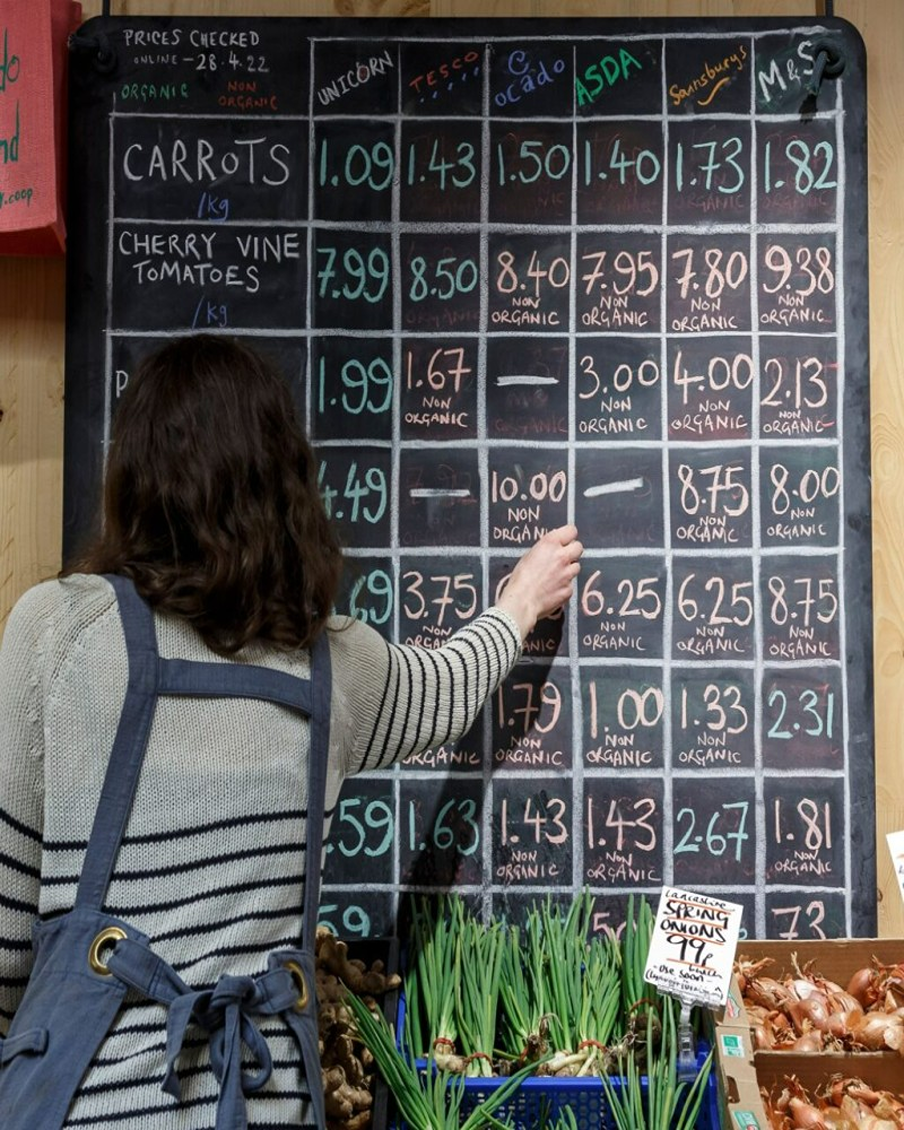
The Real Living Wage is a wage recommendation calculated by real people who get by, rather than the government’s Living Wage (which is basically just a marketing rebranding of the minimum wage). The latter is not working, as proven by people in full-time work who are sometimes having to visit food banks to survive (Iceland’s manager recently said that some people are even refusing potatoes and root vegetables when they arrive, as they can’t afford to boil them once home). Things literally are that bad for some people.
You can’t just ‘roll up at a food bank’ and ask for food, as some MPs suggest. People at food banks are not there due to ‘bad budgeting skills’. Most of us are quite well aware of how to buy a cheap packet of pasta with cheap tomato sauce to make a tasty filling meal. Jack Monroe’s recent creation of the Vimes Food Index was designed to reflect the true costs of goods (supermarkets in comparison have put up the price of apples in recent years, more than champagne).
The government’s Living Wage is presently £10.18 to £10.48 (depending on age) with no London weighting allowance. The Real Living Wage is £12 per hour (or £13.15 per hour for Londoners) from age 18. Unlike the government’s version, this is voluntary but tens of thousands of companies are now paying it to their employees.
reasons to pay employees a Living Wage
The old adage of ‘if you look after your staff, they look after you’ would apply. If you treat and pay staff well, they are more likely to stay. And if they stay, this costs you less long-term than keep having to chop and change staff, advertise for new staff, start new NI and pension schemes etc.
Staff that are paid well also are healthier and have better quality of life. This usually makes them happier (good mental health) and means they have better life/work balance, so again are more likely to be an asset to your company. 87% of companies that pay it also say that they get more customers, as people like companies that pay their staff fairly. It’s also obviously easier to recruit staff.
Let’s take a look: the legal living wage is £1.48 less than the voluntary Living Wage. Doesn’t sound much? But that works out around an extra £60 a week. This is likely a whole week’s worth of shopping (or possibly two if you live alone), the cost of a dental check-up (or half to a third of the price of a filling, depending on whether you have an NHS or private dentist).
It’s the cost of a couple of pairs of quality vegan shoes, the price of calling someone in to fix a leaky appliance or dodgy boiler. Or the cost of a train fare to visit an ailing relative. Calculate this over a year, and you can begin to see the difference that just £60 a week can make.
Many big companies now pay a voluntary Living Wage, and it’s understand that small indies have to juggle finances a bit to make the grade. But what ilks is that many big companies that could afford it, don’t pay a voluntary higher Living Wage. In February 2024, the government named 500 companies that were not even paying minimum wage (including high street brands who have been ordered to pay millions in backdated salaries). EasyJet and Greggs said this was due to genuine errors, Estee Lauder said it was because they accidentally misinterpreted the guidelines and Currys threw their toys of the pram and said the government shouldn’t keep increasing the minimum wage (even though many people can’t afford to buy food when they are paid it).
Clean for Good (London) is one of the first in an industry that employes thousands of people, to pay all workers a Living Wage. This is good news for the cleaners and housekeepers who are notoriously low paid in luxury hotels, while guests pay eye-popping prices for luxury suites.
which supermarkets pay a Living Wage?

Not most of them. Aldi and Lidl do (they are German-owned so used to abiding by better employee rules). The other big company (not a supermarket) that pays a real living wage is IKEA (again, it’s Swedish, not British).
By comparison, Unicorn Grocery (a Manchester locally-owned food co-op) has prices very similar to main supermarkets (and often better for organic food). But because it’s run for the community over shareholders, overheads are far lower. And so it pays its staff better. Staff are all paid a Real Living Wage, with casual staff paid 80% of that (or the Real Living Wage, whichever is higher).
do MPs know the price of a basket of goods?
The ‘basket of goods’ is how the government’s Living Wage is calculated , with items including everyday goods like bread, milk and vegetables, but also new items added each year (this year’s additions included an air-fryer and hand gel). Based on a median level of earnings, the Real Living Wage instead is calculated by real people, rather than quangos at Whitehall on high salaries.
MPs presently get a salary of around £86K (plus expenses) yet some have recently suggested that people who visit food banks should learn how to ‘cook on a budget’. When he was Prime Minister, David Cameron famously got cornered when asked if he knew the price of a loaf of bread. He got out of it by saying that he baked his own bread using granary flour. Then made things worse by recommending the £100 breadmaker and premium flour that costs over £30 for a bulk bag. Similarly, Rishi Sunak when asked replied that as a health-conscious family, they all have different Hovis ‘seeded breads’. Both answers are fine – but not when they are then cutting benefits from the poorest in society, who then can’t afford to buy bread.
You can look up how your MP voted to cut or retain welfare benefits. There’s something that sticks about multi-millionaires cutting benefits of the poorest in society, whatever their arguments. At least they should try to live on them for a while. To give him credit, former Tory MP Matthew Parris did try years ago in Tyneside. He spent £11 on food, and 62p for a bus to a £2 football game. And when he had 61p left, he ran out of money for the meter and could not even afford to buy a drink at the local working men’s club. He soon gave up politics, and now writes (often excellent) articles for newspapers on society.
If you do not ensure that people are being paid a living wage, then you are going to have people who rely on government assistance. It’s that simple. Ron Crumpton






